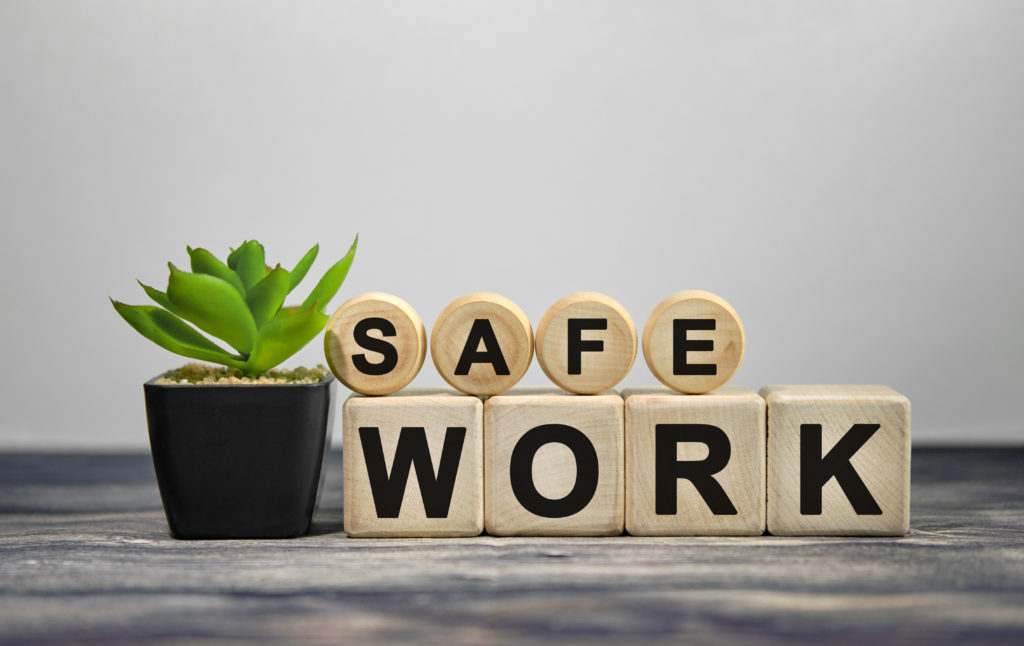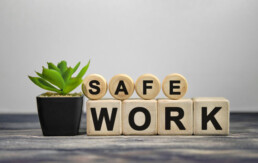OSHA Issues COVID-19 Workplace Safety Guidelines
Employees must know their rights as businesses around the world continue to adapt to the challenges due to the CoVid-19 pandemic. As social distancing and other safety precautions are put in place, businesses must comply with local, state and federal requirements for maintaining a safe work environment and ensure the good health and safety of employees. Most laws enacted in response to CoVid-19 vary depending on whether a business is considered essential or non-essential. For example, non-essential businesses may not compel non-essential employees to report to work, and it is illegal to retaliate against any non-essential employee who refuses to go to work. Essential workers, however, also have protections that require employers to ensure and maintain a safe workplace.
In March 2020, the Occupational Safety and Health Administration (OSHA) issued new guidelines as a result of the pandemic to clarify existing federal law that protects employees. The guidelines address the additional health risks posed by CoVid-19. Under the “General Duties Clause” enacted in 1970, OSHA (as part of the Labor Code), requires employers ensure the workplace is free from “recognized hazards” that are likely to result in serious injury or death of employees.
29 U.S. Code § 654 (5)(a)(1): shall furnish to each of his employees employment and a place of employment which are free from recognized hazards that are causing or are likely to cause death or serious physical harm to his employees.
The new OSHA guidelines, for the most part, provide guidance that follows the advice of public health officials that are already recommended for everyone such as washing hands frequently and maintaining social distancing. While the guidelines are not legally binding, they do outline recommended precautions that employers should take in order to ensure the safety of employees.
The new guidelines address four categories, or controls, for businesses to ensure employee safety: (1) engineering, (2) administrative, (3) safe work practices, and (4) personal protective equipment. The first category, engineering, identifies safety measures to separate employees with physical barriers. Administrative controls include ensuring sick employees stay home, and creating enough space for employees to stay six feet apart. Under safe work practices, OSHA recommends that company policies and practices promote good health such as providing hand sanitizer, sufficient time to wash hands frequently, and having disinfecting products available. Finally, personal protection equipment includes providing masks, gloves and eye protection to reduce the risk of exposure to CoVid-19, and would depend on the type of work and level or risk.
Additional federal, state and local laws may provide additional protection to employees. For example, in Los Angeles County, local law requires social distancing in public as well as wearing non-surgical masks by employees of essential business as well as customers. Businesses that fail to provide employees with personal protective equipment or ensure customers are wearing masks are violating the law.

FREE CONSULTATION
Srourian Law Firm, with locations in Los Angeles, Westwood, Woodland Hills, and Orange County is experienced in all aspects of employment law including OSHA violations and have aggressively represented employees in Los Angeles, Hollywood, Santa Monica, Orange, Irvine, Anaheim, Santa Ana, Newport Beach, Costa Mesa, Fullerton, Tustin, Mission Viejo, San Clemente, Garden Grove, Laguna Niguel, Brea, Fountain Valley, Aliso Viejo, Yorba Linda, Westminster, Laguna Hills, Cypress, and La Habra.
If you or someone you know suffered employment violations as an employee including OSHA violations, you may have certain employee rights under state and federal law. Employees may be entitled to damages as a part of the class action lawsuit. Please contact us to speak with one of our lawyers for a free consultation.

